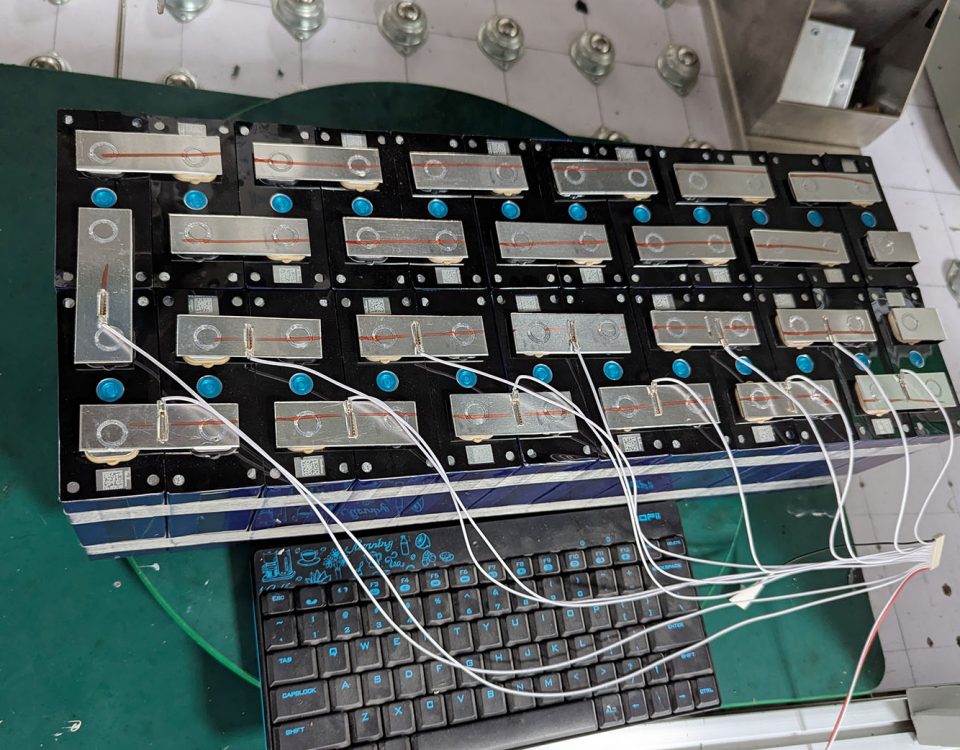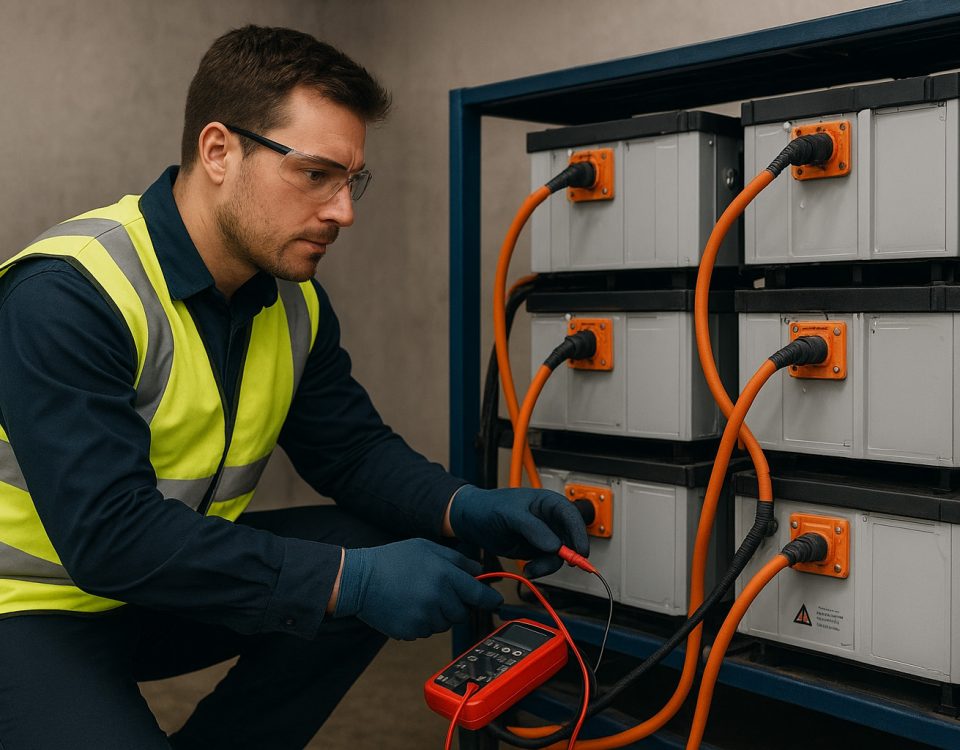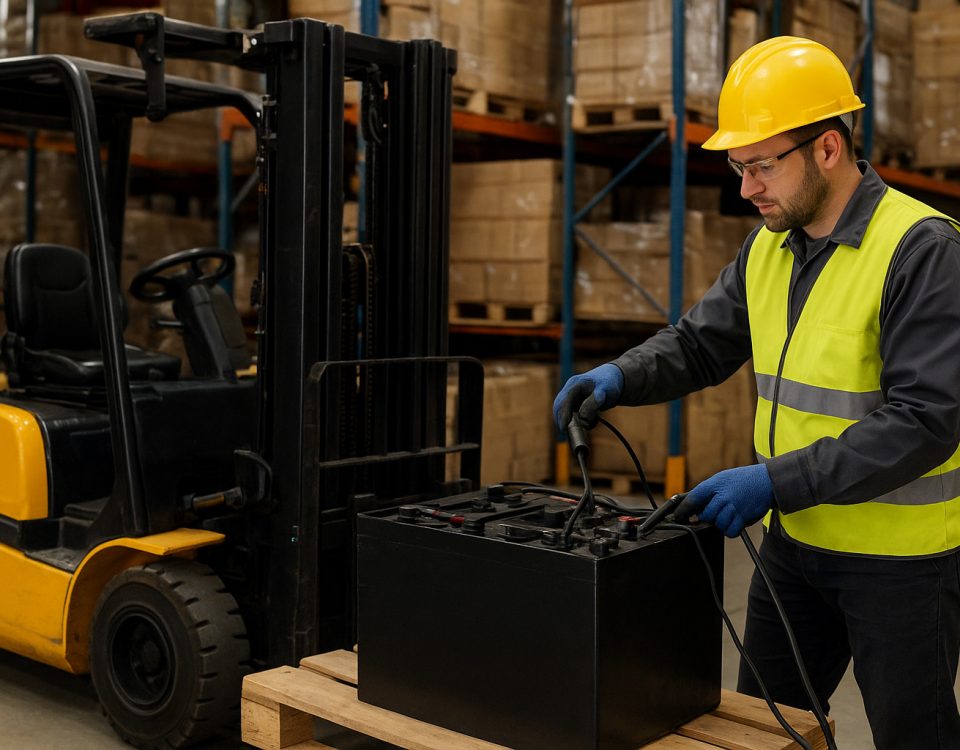Introduction
As industries increasingly turn to automation to enhance productivity, Automated Guided Vehicles (AGVs) are at the forefront of this transformation. These versatile machines streamline operations in warehouses, manufacturing plants, and logistics centers. However, the efficiency and effectiveness of AGVs heavily rely on their battery technology. With emerging innovations in solid-state batteries, advancements in energy density, and sophisticated battery management systems (BMS), the future of AGV battery technology holds the promise of improved sustainability, reduced costs, and enhanced safety. This article explores these transformative trends and their implications for the industry.
Innovations in Solid-State Batteries
One of the most exciting developments in battery technology is the emergence of solid-state batteries. Unlike traditional lithium-ion batteries that utilize liquid electrolytes, solid-state batteries employ a solid electrolyte, resulting in several key advantages:
Enhanced Energy Density
Solid-state batteries are poised to offer significantly higher energy densities compared to their liquid counterparts. This improvement means AGVs can operate for longer periods without recharging, thus reducing downtime and increasing overall productivity. The ability to maintain power over extended periods is crucial for industries that rely on continuous operation, such as e-commerce and manufacturing.
Improved Safety
Safety is a paramount concern in industrial settings. Solid-state batteries mitigate many risks associated with traditional batteries, such as overheating and potential fires. Their stable materials are less prone to thermal runaway, providing a safer option for AGV operations. This enhanced safety profile can help companies meet stringent regulatory standards while protecting their workforce.
Longevity and Reliability
Another significant benefit of solid-state batteries is their longevity. These batteries tend to have a longer lifecycle than traditional lithium-ion batteries, reducing the frequency of replacements. For businesses, this translates into lower operational costs and a reduced environmental impact, as fewer batteries will end up in landfills.
Energy Density Improvements: A Game Changer for AGVs
The pursuit of higher energy density is crucial for the future of AGV battery technology. Innovations in this area can dramatically enhance AGV capabilities:
Increased Load Capacity
With advancements in energy density, AGVs can manage heavier payloads more effectively. This capability is essential for industries like manufacturing and logistics, where transporting substantial loads efficiently is critical. By increasing load capacity, businesses can streamline operations, minimize trips, and maximize efficiency.
Extended Operating Range
Higher energy density also extends the operational range of AGVs. In large facilities, the ability to travel longer distances without recharging is a game changer. This extended range allows AGVs to operate continuously, improving productivity and reducing the need for frequent battery swaps.
Faster Charging Solutions
As battery technology evolves, rapid charging solutions are becoming more feasible. Future AGV batteries may offer significantly reduced charging times, allowing for quick turnaround between tasks. This efficiency further enhances operational effectiveness, enabling AGVs to remain in service longer and reducing downtime.
The Role of Battery Management Systems (BMS)
As AGV battery technology becomes more sophisticated, the role of advanced Battery Management Systems (BMS) is increasingly critical. A robust BMS ensures optimal performance and safety through real-time monitoring and management:
Comprehensive Monitoring
Modern BMS technology enables comprehensive monitoring of battery health, including voltage, temperature, and state of charge. This data is vital for operators, providing insights into battery performance and allowing for proactive maintenance. By identifying potential issues early, businesses can avoid costly breakdowns and enhance overall operational reliability.
Enhanced Safety Features
Advanced BMS systems incorporate features that enhance safety, such as automatic shutoff in case of overheating or overcharging. These safeguards are crucial in preventing accidents, particularly in environments where AGVs operate in close proximity to human workers.
Predictive Maintenance
The integration of artificial intelligence into BMS can revolutionize how businesses approach battery maintenance. Predictive analytics can analyze historical data to forecast when maintenance will be needed, allowing companies to schedule servicing proactively. This foresight minimizes unexpected failures and maximizes uptime, driving efficiency.
Industry Focus: Broader Implications for the AGV Market
The advancements in AGV battery technology are not just beneficial for individual operations; they carry significant implications for the broader industry:
Cost Reduction
As battery technologies improve, the overall costs associated with AGV operations are likely to decrease. Solid-state batteries and higher energy densities lead to longer lifespans and reduced maintenance needs, providing significant cost savings over time. This reduction makes AGVs a more attractive investment for businesses seeking automation solutions.
Sustainability and Environmental Impact
Sustainability is a growing concern in today's business landscape. The shift to more efficient battery technologies aligns with global efforts to reduce carbon footprints. Longer-lasting batteries, combined with the reduced need for frequent replacements, can significantly decrease waste and energy consumption, supporting companies in meeting their sustainability goals.
Safety Enhancements Across Industries
As safety becomes increasingly critical in industrial settings, the advancements in AGV battery technology contribute to improved workplace safety standards. By minimizing risks associated with battery failures and enhancing monitoring capabilities, companies can create safer environments for their employees.
Conclusion
The future of AGV battery technology is bright, driven by innovations in solid-state batteries, enhancements in energy density, and the development of advanced Battery Management Systems. These advancements not only promise improved efficiency and reduced costs but also pave the way for safer, more sustainable industrial operations.
RICHYE, a leader in lithium battery manufacturing, is at the forefront of this technological evolution. Known for producing high-quality lithium batteries that excel in performance, safety, and reliability, RICHYE is committed to providing solutions that empower industries to harness the full potential of AGVs. As the demand for automated solutions grows, RICHYE's innovative battery technologies will play a crucial role in shaping the future of automation.
By embracing these advancements, businesses can enhance their operational efficiency, contribute to sustainability efforts, and ensure a safer workplace for all. The next frontier in AGV battery technology is here, and the potential is limitless.




